The Pros and Cons of Buying a New Construction Home in Oregon
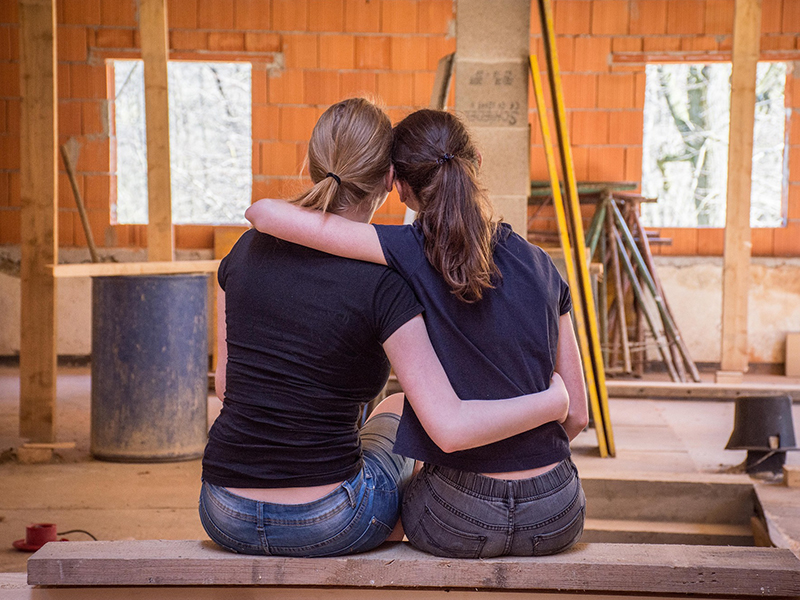
Oregon is a popular choice for homebuyers who want to live in a beautiful nature-filled setting while enjoying the conveniences of bustling cities. If you’re considering buying a home in Oregon, you may be wondering whether a new construction home is the best option for you.
In this blog post, we’ll explore the pros and cons of buying a new construction home in Oregon. We’ll take a closer look at the advantages of newly built properties as opposed to existing homes, as well as their potential drawbacks. Furthermore, we will discuss how to choose the right builder and where to purchase a new construction home in Oregon.
WHAT ARE NEW CONSTRUCTION HOMES?
New construction homes are houses or other residential properties that have never been lived in before. They can be any of the following:
- A home built from scratch according to the design and specifications of the property owner
- A home in a development where the buyer can choose from several layouts offered by the builder or developer, with limited options for customization
- A spec home or a home completely built by a developer and sold as is to a buyer
Often, new construction homes come with the latest building materials and technology, resulting in greater comfort and lower energy bills. What’s more, depending on the type of property, buyers have the opportunity to personalize their new home by choosing finishes, fixtures, and other design elements to create a space that reflects their tastes and needs.
Buying a new construction home also offers the benefit of being able to move in without the need for extensive repairs or renovations. While the cost of a new construction home may be higher than an existing property, the long-term benefits can make it a worthwhile investment.
However, new construction homes also come with their own set of challenges, such as potential delays in construction, higher costs, and the need to navigate the building process. Whether you’re a first-time homebuyer or an experienced real estate investor, it’s important to carefully consider the pros and cons of new construction homes before making a decision.
THE PROS OF NEW CONSTRUCTION
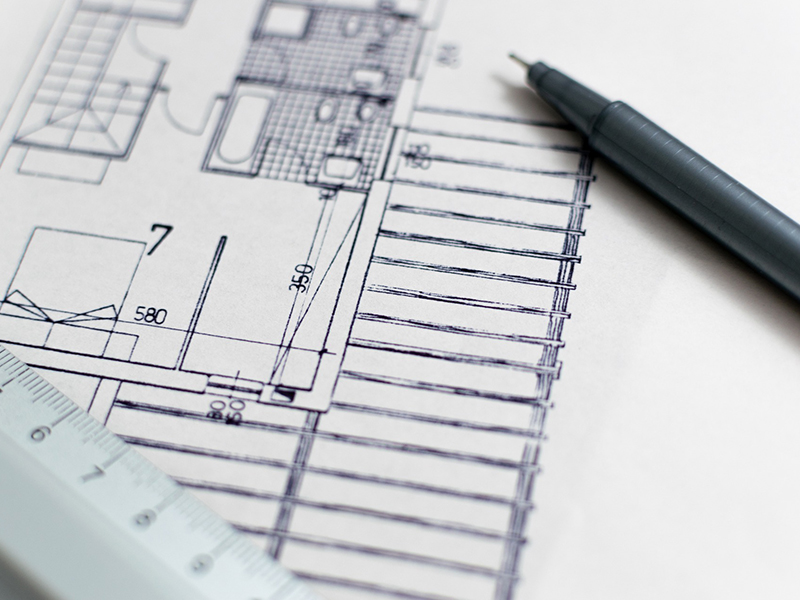
Customizable
When you buy a new construction home, you don’t have to compromise on certain features or make costly renovations to get the house you want. You can design the home from scratch, choosing everything from the floor plan and layout to the finishes and fixtures.
Often, builders offer options for customization, including flooring, cabinets, countertops, appliances, etc. This way, you can create a home that truly reflects your personal tastes and preferences. You may also be able to make changes to the floor plan, such as adding an extra bedroom or bathroom or extending the living space.
Modern features and amenities
Building a home from the ground up can be a great investment, especially for those who want to live in a home built with the latest building materials, technologies, and design trends.
New construction homes often come with such features as built-in storage, walk-in closets, and larger garages, which can add convenience and functionality to the space. Smart home features like programmable thermostats and energy-efficient appliances are also popular in new construction homes, helping to reduce energy bills and improve comfort.
Furthermore, many new construction homes incorporate modern design elements like open plans, large windows, and high ceilings, creating an airy and spacious atmosphere. In addition to providing ample natural light, these features can also make the home more visually appealing.
What’s more, many new homes are built in planned communities with additional amenities such as pools, fitness centers, and community parks. Homeowners can enjoy a slew of recreational activities without having to leave the neighborhood.
Energy-efficient
Many new construction homes in Oregon come with the latest home technologies, making them a smart investment. Features like a high-efficiency heating and cooling system, advanced insulation, energy-efficient windows, doors, and lighting, as well as energy-saving appliances, can go a long way in bringing your utilities costs down.
Energy-efficient homes are also better for the environment. As new construction homes are built with reduced energy consumption, they contribute to reducing carbon emissions and the home’s overall carbon footprint.
Furthermore, new homes are designed and built to the latest safety standards, giving you added peace of mind.
Home builder warranties
One advantage of buying a new construction home is the home builder’s warranty that comes with it. Typically offered by the builder or developer, home builder’s warranties can protect you from unexpected repair costs in the early years of homeownership, and ensure that any issues on the property are addressed promptly and professionally.
These warranties can cover a range of items, such as the foundation, roof, plumbing, electrical, and HVAC systems, among others. However, it’s important to note that the length and scope of the warranties can vary depending on the builder and the laws of the state.
Having a home builder’s warranty can be especially important for first-time homebuyers who may not be familiar with the ins and outs of home maintenance or repairs. With a home builder’s warranty, you’ll have the confidence that the home is built to high standards and that any issues that arise will be addressed by the builder.
Move-in ready
Once the home is completed and outfitted with the most up-to-date materials, technologies, and warranties, you can enjoy a stress-free home-buying experience and move in without having to worry about major renovations or repairs. If you’re on a tight schedule or need to move fast for work or personal reasons, then buying a new construction home may be the right option for you.
Home value appreciation
If you plan to sell your home soon, new construction homes usually provide a higher return on investment due to their cutting-edge building materials and technologies. In addition, new construction homes are typically located in up-and-coming neighborhoods with new amenities and infrastructure, which can help increase their values.
If the home’s value increases significantly, you can sell it for a profit and use the proceeds to buy a larger or more expensive home, invest in other assets, or put the money toward other financial goals.
THE CONS OF NEW CONSTRUCTION
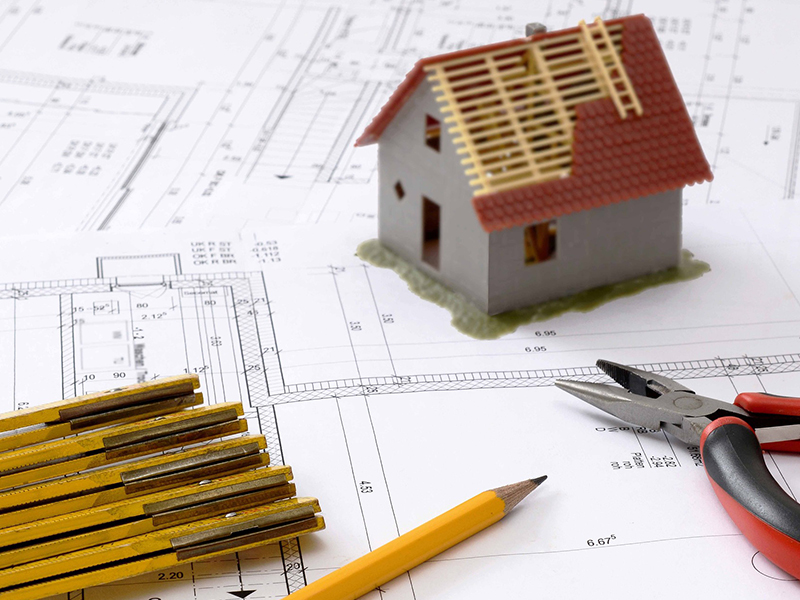
More expensive
New construction homes often come with a premium price tag due to the cost of materials, labor, and land. Additionally, new construction homes may be subject to additional fees, such as homeowner association (HOA) fees or special assessments for community amenities like pools and parks.
The higher cost of a new construction home can make it difficult for some homebuyers to afford the home or qualify for a mortgage. You may need to save up for a larger down payment or have a higher credit score to secure financing for a new construction home.
Moreover, the higher cost might mean that you need to compromise on other aspects of your lifestyle or financial goals, such as saving for retirement or traveling.
Longer timeline
If a new home is still being built, it can take several months, or even a year or more, to be completed. Delays in construction due to weather or supply chain issues can also add to the timeline.
A longer timeline may also affect homebuyers’ ability to lock in a mortgage rate or interest rate for a certain period, resulting in a higher interest rate or less favorable mortgage terms.
However, some homebuyers may appreciate a longer timeframe for a new construction home, as it gives them more time to prepare and save. Moreover, a longer timeline can provide more customization options or upgrades before the home is moved in.
Limited negotiating power
Unlike in an existing home where there may be room for negotiation on price or repairs, builders of new construction homes often have less flexibility when it comes to pricing and other terms. As the builder has already invested significant time and money in the project, they need to set prices and policies for their own financial planning and profit margins.
In some cases, you may be able to negotiate for certain upgrades or features to be included in the home or for discounts on closing costs or financing. But in a hot real estate market like Oregon where demand for new construction homes is high, you may have little to no bargaining power at all. A high demand for homes may lead builders to be less willing to negotiate on price or other terms, especially when they receive multiple offers.
Decision fatigue
The building process for a new construction home can involve decisions about everything from the layout and floor plan to the type of flooring, cabinets, and countertops. You must also decide on the design, finishes, and upgrades for your new house.
This excites some buyers because it allows them to design their home exactly the way they want it. Others, on the other hand, may find it overwhelming and time-consuming, which can lead to wrong decisions. Additionally, some builders may require you to make decisions quickly or within a certain timeframe, and this can add to the pressure and stress of the decision-making process.
If you’re considering buying a new construction home or building one yourself, it’s important to be prepared for the decision-making process and to take steps to manage stress and avoid decision fatigue. It may involve working closely with the builder, setting clear priorities and goals, and giving yourself plenty of time to decide.
Higher taxes
New construction homes are often assessed at a higher value than existing homes due to the fact that they are brand new and may have features or finishes that are not found in older homes.
Furthermore, some new construction homes may be subject to additional taxes or fees not normally associated with existing homes. For example, some local governments may charge impact fees or development fees to assist with infrastructure improvements. These fees can add thousands of dollars to the overall cost of the home and may come as a surprise to buyers who are unaware of them.
Limited inventory
Unlike existing homes, which can be found in a variety of neighborhoods and come at various price points, new construction homes are often limited to specific areas and communities. This can make it more difficult for buyers to find a new construction home that meets their specific needs and preferences.
Additionally, buyers who are interested in a specific neighborhood or community may find that there are few or no new construction homes available in that area. This can be especially challenging for buyers who are looking for a home in a desirable school district or in an area with a high walkability score or other desirable amenities.
HOW TO CHOOSE THE RIGHT BUILDER
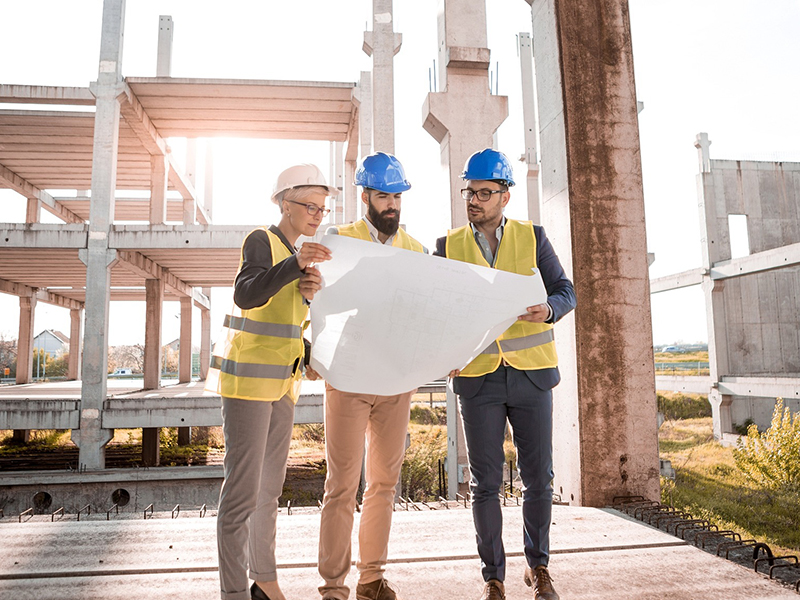
The builder you choose will be responsible for constructing your dream home, and the success of the project depends largely on their expertise, experience, and communication skills. Here are some questions to ask your prospective builder to ensure they are the right fit for you:
-
Can you share references of past clients?
- Did the builder complete the project on time and within budget?
- Were there any unexpected delays or issues during the construction process?
- Did the builder communicate clearly and regularly throughout the project?
- How was the quality of the workmanship and materials?
- Would you recommend this builder to others?
-
What warranties do you offer?
-
How is your credit?
- Do you have any bankruptcy or debt collection experience?
- How do you handle payments to subcontractors and suppliers?
- Do you have any outstanding liens or judgments against you?
- How do you manage cash flow and ensure you have enough funds to finish the project?
It’s always a good idea to ask for references and talk to previous clients to get an idea of the builder’s work quality, communication skills, and overall satisfaction rating. When speaking with past clients, be sure to ask specific questions about their experience with the builder, such as:
Home builders usually offer a structural warranty as well as a warranty on workmanship and materials. The length of coverage varies depending on the builder and the warranty type. Moreover, a builder’s warranty may not cover certain types of damage or issues, such as natural disasters or normal wear and tear.
Before signing the contract, it’s crucial to review the builder’s warranty carefully to avoid issues later on. Make sure to inquire about the warranty’s type and duration, what it covers, any exclusions or limitations, and how to file a warranty claim.
Inquiring about a builder’s credit might seem odd, but it’s a crucial question to ask since choosing a builder with good credit can affect the construction process and the quality of the work. Here are some questions you may want to ask a home builder:
By asking these questions, you can get a sense of the builder’s financial stability and their ability to manage the construction process effectively. A builder with poor credit or financial instability may be more likely to experience delays, disputes with subcontractors or suppliers, or other issues that could jeopardize your new construction project.
WHERE TO PURCHASE A NEW CONSTRUCTION HOME IN SOUTHERN OREGON
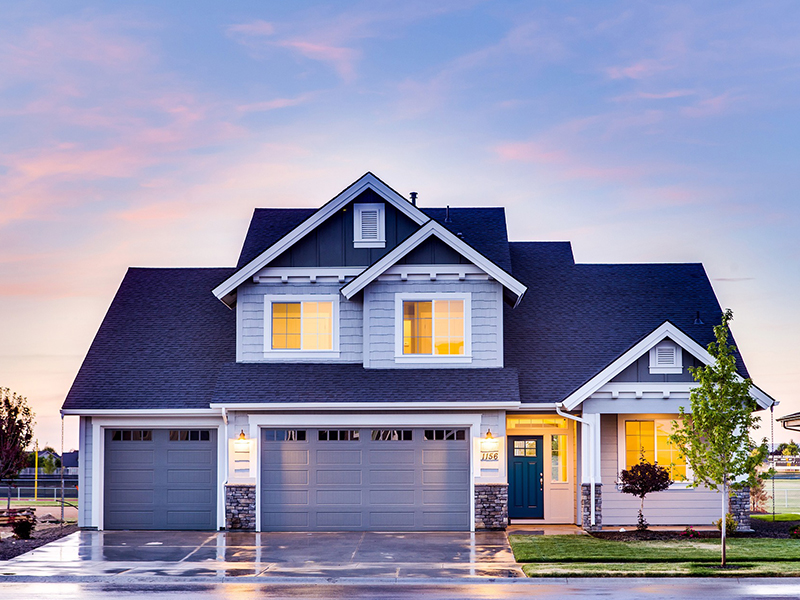
With its diverse landscapes, outdoor activities, and cultural attractions, Oregon is a top choice for homebuyers. Here are some popular areas in southern Oregon for new construction homes:
Ashland
Ashland is known for its natural beauty and cultural attractions, such as the Oregon Shakespeare Festival. New construction homes are available in neighborhoods with scenic views, easy access to outdoor activities, and close proximity to the city’s downtown.
Talent
As a smaller city in southern Oregon, Talent offers new construction homes in quiet neighborhoods with access to local amenities, including parks and shopping centers. Homebuyers can find modern, energy-efficient homes with various features and designs.
Medford
Medford offers new construction homes in various styles and neighborhoods. A wide range of homes are available with scenic views, easy access to local amenities, and close proximity to outdoor activities.
Phoenix
Phoenix is a small city located between Medford and Ashland, offering new construction homes in neighborhoods with easy access to Interstate 5 and local attractions like wineries and the Rogue River.
Jacksonville
Located in the Applegate Valley, Jacksonville is a historic city with a range of new construction homes for sale. You can find homes with a mix of modern and classic architecture in neighborhoods offering scenic views and easy access to local attractions.
These are just a few areas in Oregon that offer new construction homes. Be sure to research and visit different areas to find the location and home that fit your needs and preferences.
FIND THE RIGHT NEW CONSTRUCTION HOME WITH MARIE DONOVAN
Marie Donovan is a trusted South Oregon Realtor with decades of experience in the industry. She dedicates herself to delivering high-quality, personalized service based on the needs and goals of each client.
As a long-time resident of southern Oregon, Marie has in-depth understanding of the local market and can offer you valuable insights. She will provide you with the expertise and commitment you need to make your home buying or selling experience a success.
Find the best new construction home and the right community for you in Oregon. Call the Marie Donovan team at 800.334.7499 or send an email here
.
